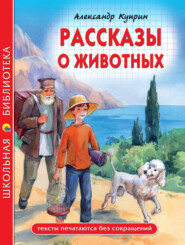По всем вопросам обращайтесь на: info@litportal.ru
(©) 2003-2024.
✖
The Duel
Настройки чтения
Размер шрифта
Высота строк
Поля
He had scarcely got out of earshot before Raisa Alexandrovna, in a hypocritical, pathetic tone, burst out with, “And I have deceived this saint, this noblest of husbands. And for whom? – Oh, if he knew all, if he only knew!”
“Mazurka générale,” shrieked Bobetinski. “Gentlemen, resume your partners.”
The violently perspiring bodies of the dancers and the dust arising from the parquet floor made the air of the ballroom close, and the lights in the lamps and candelabra took a dull yellow tint. The dancing was now in full swing, but as the space was insufficient, each couple, who every moment squeezed and pushed against one another, was obliged to tramp on the very same spot. This figure – the last in the quadrille – consisted in a gentleman, who was without a partner, pursuing a couple who were dancing. If he managed to come face to face with a lady he clapped her on the hand, which meant that the lady was now his booty. The lady’s usual partner tried, of course, to prevent this, but by this arose a disorder and uproar which often resulted in some very brutal incidents.
“Actress,” whispered Romashov hoarsely, as he bent nearer to Raisa. “You’re as pitiable as you are ridiculous.”
“And you are drunk,” the worthy lady almost shrieked, giving Romashov at the same time a glance resembling that with which the heroine on the stage measures the villain of the piece from head to foot.
“It only remains for me to find out,” pursued Romashov mercilessly, “the exact reason why I was chosen by you. But this, however, is a question which I can answer myself. You gave yourself to me in order to get a hold on me. Oh, if this had been done out of love or from sentiment merely! But you were actuated by a base vanity. Are you not frightened at the mere thought of the depths into which we have both sunk, without even a spark of love that might redeem the crime? You must understand that this is even more wretched than when a woman sells herself for money. Then dire necessity is frequently the tempter. But in this case – the memory of this senseless, unpardonable crime will always be to me a source of shame and loathing.”
With cold perspiration on his forehead and distraction in his weary eyes, he gazed on the couples dancing. Past him – hardly lifting her feet and without looking at her partner – sailed the majestic Madame Taliman, with motionless shoulders and an ironical, menacing countenance, as if she meant to protect herself against the slightest liberty or insult. Epifanov skipped round her like a little frisky goat. Then glided little Miss Lykatschev, flushed of face, with gleaming eyes, and bare, white, virginal bosom. Then came Olisár with his slender, elegant legs, straight and stiff as a sparrow’s. Romashov felt a burning headache and a strong, almost uncontrollable desire to weep; but beside him still stood Raisa, pale with suppressed rage. With an exaggerated theatrical gesture she fired at him the following sarcasm —
“Did any one ever hear such a thing before? A Russian Infantry lieutenant playing the part of the chaste Joseph? Ha, ha, ha!”
“Yes, quite so, my lady. Precisely that part,” replied Romashov, glaring with wrath. “I know too well that it is humiliating and ridiculous. Nevertheless, I am not ashamed to express my sorrow that I should have so degraded myself. With our eyes open we have both flung ourselves into a cesspool, and I know that I shall never again deserve a pure and noble woman’s love. Who is to blame for this? Well, you. Bear this well in mind – you, you, you – for you were the older and more experienced of us two, especially in affairs of that sort.”
Raisa Alexandrovna got up hurriedly from her chair. “That will do,” she replied in a dramatic tone. “You have got what you wanted. I hate you. I hope henceforward you will cease to visit a home where you were received as a friend and relation, where you were entertained and fed, and where, too, you were found out to be the scoundrel you are. Oh, that I had the courage to reveal everything to my husband – that incomparable creature, that saint whom I venerate. Were he only convinced of what has happened he would, I think, know how to avenge the wounded honour of a helpless, insulted woman. He would kill you.”
Romashov looked through his eyeglass at her big, faded mouth, her features distorted by hate and rage. The infernal music from the open windows of the gallery continued with unimpaired strength; the intolerable bassoon howled worse than ever, and, thought Romashov, the bass drum had now come into immediate contact with his brain.
Raisa shut her fan with a snap that echoed through the ballroom. “Oh, you – lowest of all blackguards on earth,” whispered she, with a theatrical gesture, and then disappeared into the ladies’ retiring-room.
All was now over and done with, but Romashov did not experience the relief he expected. This long-nourished hope to feel his soul freed from a heavy, unclean burthen was not fulfilled. His strict, avenging conscience told him that he had acted in a cowardly, low, and boorish way when he cast all the blame on a weak, narrow, wretched woman who, most certainly at that moment, in the ladies’-room, was, through him, shedding bitter, hysterical tears of sorrow, shame, and impotent rage.
“I am sinking more and more deeply,” thought he, in disgust at himself. What had his life been? what had it consisted of? An odious and wanton liaison, gambling, drinking, soul-killing, monotonous regimental routine, with never a single inspiriting word, never a ray of light in this black, hopeless darkness. Salutary, useful work, music, art, science, where were they?
He returned to the dining-room. There he met Osadchi and his friend Viätkin, who with much trouble was making his way in the direction of the street door. Liech, now quite drunk, was helplessly wobbling in different directions, whilst in a fuddled voice he kept asserting that he was – an archbishop. Osadchi intoned in reply with the most serious countenance and a low, rolling bass, whilst carefully following the ecclesiastical ritual —
“Your high, refulgent Excellency, the hour of burial has struck. Give us your blessing, etc.”
As the soirée approached its end, the gathering in the dining-room grew more noisy and lively. The room was already so full of tobacco smoke that those sitting at opposite sides of the table could not recognize each other. Cards were being played in one corner; by the window a small but select set had assembled to edify one another by racy stories – the spice most appreciated at officers’ dinners and suppers.
“No, no, no, gentlemen,” shrieked Artschakovski, “allow me to put in a word. You see it was this way: a soldier was quartered at the house of a khokhol[14 - Nickname for Little Russians on account of their curious habit of cutting and fashioning their hair into a tuft (khokhol) on the crown.] who had a pretty wife. Ho, ho, thought the soldier, that is something for me.”
Then, however, he was interrupted by Vasili Vasilievich, who had been waiting long and impatiently —
“Shut up with your old stories, Artschakovski. You shall hear this. Once upon a time in Odessa there – ”
But even he was not allowed to speak very long. The generality of the stories were rather poor and devoid of wit, but, to make up for that, they were interspersed with coarse and repulsive cynicisms. Viätkin, who had now returned from the street, where he had been paying his respects to Liech’s “interment” and holy “departure,” invited Romashov to sit down at the table.
“Sit you here, my dear Georginka.[15 - An affectionate diminutive of George.] We will watch them. To-day I am as rich as a Jew. I won yesterday, and to-day I shall take the bank again.”
Romashov only longed to lighten his heart, for a friend to whom he might tell his sorrow and his disgust at life. After draining his glass he looked at Viätkin with beseeching eyes, and began to talk in a voice quivering with deep, inward emotion.
“Pavel Pavlich, we all seem to have completely forgotten the existence of another life. Where it is I cannot say; I only know that it exists. Even in that men must struggle, suffer, and love, but that life is rich – rich in great thoughts and noble deeds. For here, my friend, what do you suppose our life is, and how will such a miserable existence as ours end some day?”
“Well, yes, old fellow – but it’s life,” replied Viätkin in a sleepy way. “Life after all is – only natural philosophy and energy. And what is energy?”
“Oh, what a wretched existence,” Romashov went on to say with increasing emotion, and without listening to Viätkin. “To-day we booze at mess till we are drunk; to-morrow we meet at drill – ’one, two, left, right’ – in the evening we again assemble round the bottle. Just the same, year in, year out. That’s what makes up our life. How disgusting!”
Viätkin peered at him with sleepy eyes, hiccoughed, and then suddenly started singing in a weak falsetto: —
“In the dark, stilly forest
There once dwelt a maiden,
She sat at her distaff
By day and by night.
“Take care of your health, my angel, and to the deuce with the rest.
“Romashevich! Romaskovski! let’s go to the board of green cloth. I’ll lend you a – ”
“No one understands me, and I have not a single friend here,” sighed Romashov mournfully. The next moment he remembered Shurochka – the splendid, high-minded Shurochka, and he felt in his heart a delicious and melancholy sensation, coupled with hopelessness and quiet resignation.
He stayed in the mess-room till daybreak, watched them playing schtoss, and now and then took a hand at the game, yet without feeling the slightest pleasure or interest in it. Once he noticed how Artschakovski, who was playing at a little private table with two ensigns, made rather a stupid, but none the less successful, attempt to cheat. Romashov thought for a moment of taking up the matter and exposing the fraud, but checked himself suddenly, saying to himself: “Oh, what’s the use! I should not improve matters by interfering.”
Viätkin, who had lost, in less than five minutes, his boasted “millions,” sat sleeping on a chair, with his eyes wide open and his face as white as a sheet. Beside Romashov sat the eternal Lieschtschenko with his mournful eyes fixed on the game. Day began to dawn. The guttering candle-ends’ half-extinguished, yellowish flames flickered dully in their sticks, and illumined by their weak and uncertain light the pale, emaciated features of the gamblers. But Romashov kept staring at the cards, the heaps of silver and notes, and the green cloth scrawled all over with chalk; and in his heavy, weary head the same cruel, torturing thoughts of a worthless, unprofitable life ran incessantly.
X
IT was a splendid, though somewhat chilly, spring morning. The hedges were in bloom. Romashov, who was still, as a rule, a slave to his youthful, heavy sleep, had, as usual, overslept himself, and was late for the morning drill. With an unpleasant feeling of shyness and nervousness, he approached the parade-ground, and his spirits were not cheered by the thought of Captain Sliva’s notorious habit of making a humiliating and painful situation still worse by his abuse and rudeness.
This officer was a survival of the barbaric times when an iron discipline, idiotic pedantry – parade march in three time – and inhuman martial laws were virtually epidemic. Even in the 4th Regiment, which, from being quartered in a God-forsaken hole, seldom came into contact with civilization, and, moreover, did not bear the reputation for much culture, Captain Sliva was looked upon as a rough and boorish person, and the most incredible anecdotes were current about him. Everything outside the company, service, and drill-book, and which he was accustomed to call “rot” or “rubbish,” had no existence so far as he was concerned. After having borne for nearly all his life the heavy burden of military service, he had arrived at such a state of savagery that he never opened a book, and, as far as newspapers were concerned, he only looked at the official and military notices in the Invalid. He despised with all his innate cynicism the meetings and amusements of society, and there were no oaths, no insulting terms too gross and crude for him to incorporate in his “Soldier’s Lexicon.” One story about him was that one lovely summer evening, when sitting at his open window, occupied, as usual, with his registers and accounts, a nightingale began to warble. Captain Sliva got up instantly, and shouted in a towering rage to his servant Sachartschuk, “Get a stone and drive away that damned bird; it’s disturbing me.”
This apparently sleepy and easy-going man was unmercifully severe to the soldiers, whom he not only abandoned to the ferocity of the “non-coms.,” but whom he himself personally whipped till they fell bleeding to the ground; but in all that concerned their food, clothing, and pay, he displayed the greatest consideration and honesty, and in this he was only surpassed by the commander of the 5th Company.
To the junior officers Captain Sliva was always harsh and stiff, and a certain native, crabbed humour imparted an additional sharpness to his biting sarcasms. If, for instance, a subaltern officer happened, during the march, to step out with the wrong foot, he instantly bellowed —
“Damnation! What the devil are you doing? All the company except Lieutenant N. is marching with the wrong foot!”
He was particularly rude and merciless on occasions when some young officer overslept himself or, for some other cause, came too late to drill, which not unfrequently was the case with Romashov.
Captain Sliva had a habit then of celebrating the victim’s advent by forming the whole company into line, and, in a sharp voice, commanding “Attention!” After this he took up a position opposite the front rank, and in death-like silence waited, watch in hand and motionless, while the unpunctual officer, crushed with shame, sought his place in the line. Now and then Sliva increased the poor sinner’s torture by putting to him the sarcastic question: “Will your Honour allow the company to go on with the drill?” For Romashov he had, moreover, certain dainty phrases specially stored up, e.g. “I hope you slept well,” or “Your Honour has, I suppose, as usual, had pleasant dreams?” etc., etc. When all these preludes were finished, he began to shower abuse and reproaches on his victim.
“Oh, I don’t care,” thought Romashov to himself in deep disgust as he approached his company. “It is no worse to be here than in other places. All my life is ruined.”
Sliva, Viätkin, Lbov, and the ensign were standing in the middle of the parade-ground, and all turned at once to Romashov as he arrived. Even the soldiers turned their heads towards him, and with veritable torture Romashov pictured to himself what a sorry figure he cut at that moment.
“Well, the shame I am now feeling is possibly unnecessary or excessive,” he reasoned to himself, trying, as is habitual with timid or bashful persons, to console himself. “Possibly that which seems so shameful and guilty to me is regarded by others as the veriest trifle. Suppose, for instance, that it was Lbov, not I, who came too late, and that I am now in the line and see him coming up. Well, what more – what is there to make a fuss about? Lbov comes – that’s all it amounts to. How stupid to grieve and get uncomfortable at such a petty incident, which within a month, perhaps even in a week, will be forgotten by all here present. Besides, what is there in this life which is not forgotten?” Romashov remarked as he finished his argument with himself, and felt in some degree calm and consoled.
To every one’s astonishment this time Sliva spared Romashov from personal insults, nay, he even seemed not to have noticed him in the least. When Romashov went up to him and saluted, with his heels together and his hand at his cap, he only said, pointing his red, withered fingers, which strongly resembled five little cold sausages:
“I must beg you, Sub-lieutenant, to remember that it is your duty to be with your company five minutes before the senior subaltern officers, and ten minutes before the chief of your company.”
“I am very sorry, Captain,” replied Romashov in a composed tone.
“That’s all very well, Sub-lieutenant, but you are always asleep and you seem to have quite forgotten the old adage: ‘He who is seldom awake must go about shabby.’ And I must now ask you, gentlemen, to retire to your respective companies.”
The whole company was split up into small groups, each of which was instructed in gymnastics. The soldiers stood drawn up in open file at a distance of a pace apart, and with their uniforms unbuttoned in order to enable them to perform their gymnastic exercises. Bobyliev, the smart subaltern officer stationed in Romashov’s platoon, cast a respectful glance at his commander, who was approaching, his lower jaw stuck out and his eyes squinting, and giving orders in a resonant voice —
“Mazurka générale,” shrieked Bobetinski. “Gentlemen, resume your partners.”
The violently perspiring bodies of the dancers and the dust arising from the parquet floor made the air of the ballroom close, and the lights in the lamps and candelabra took a dull yellow tint. The dancing was now in full swing, but as the space was insufficient, each couple, who every moment squeezed and pushed against one another, was obliged to tramp on the very same spot. This figure – the last in the quadrille – consisted in a gentleman, who was without a partner, pursuing a couple who were dancing. If he managed to come face to face with a lady he clapped her on the hand, which meant that the lady was now his booty. The lady’s usual partner tried, of course, to prevent this, but by this arose a disorder and uproar which often resulted in some very brutal incidents.
“Actress,” whispered Romashov hoarsely, as he bent nearer to Raisa. “You’re as pitiable as you are ridiculous.”
“And you are drunk,” the worthy lady almost shrieked, giving Romashov at the same time a glance resembling that with which the heroine on the stage measures the villain of the piece from head to foot.
“It only remains for me to find out,” pursued Romashov mercilessly, “the exact reason why I was chosen by you. But this, however, is a question which I can answer myself. You gave yourself to me in order to get a hold on me. Oh, if this had been done out of love or from sentiment merely! But you were actuated by a base vanity. Are you not frightened at the mere thought of the depths into which we have both sunk, without even a spark of love that might redeem the crime? You must understand that this is even more wretched than when a woman sells herself for money. Then dire necessity is frequently the tempter. But in this case – the memory of this senseless, unpardonable crime will always be to me a source of shame and loathing.”
With cold perspiration on his forehead and distraction in his weary eyes, he gazed on the couples dancing. Past him – hardly lifting her feet and without looking at her partner – sailed the majestic Madame Taliman, with motionless shoulders and an ironical, menacing countenance, as if she meant to protect herself against the slightest liberty or insult. Epifanov skipped round her like a little frisky goat. Then glided little Miss Lykatschev, flushed of face, with gleaming eyes, and bare, white, virginal bosom. Then came Olisár with his slender, elegant legs, straight and stiff as a sparrow’s. Romashov felt a burning headache and a strong, almost uncontrollable desire to weep; but beside him still stood Raisa, pale with suppressed rage. With an exaggerated theatrical gesture she fired at him the following sarcasm —
“Did any one ever hear such a thing before? A Russian Infantry lieutenant playing the part of the chaste Joseph? Ha, ha, ha!”
“Yes, quite so, my lady. Precisely that part,” replied Romashov, glaring with wrath. “I know too well that it is humiliating and ridiculous. Nevertheless, I am not ashamed to express my sorrow that I should have so degraded myself. With our eyes open we have both flung ourselves into a cesspool, and I know that I shall never again deserve a pure and noble woman’s love. Who is to blame for this? Well, you. Bear this well in mind – you, you, you – for you were the older and more experienced of us two, especially in affairs of that sort.”
Raisa Alexandrovna got up hurriedly from her chair. “That will do,” she replied in a dramatic tone. “You have got what you wanted. I hate you. I hope henceforward you will cease to visit a home where you were received as a friend and relation, where you were entertained and fed, and where, too, you were found out to be the scoundrel you are. Oh, that I had the courage to reveal everything to my husband – that incomparable creature, that saint whom I venerate. Were he only convinced of what has happened he would, I think, know how to avenge the wounded honour of a helpless, insulted woman. He would kill you.”
Romashov looked through his eyeglass at her big, faded mouth, her features distorted by hate and rage. The infernal music from the open windows of the gallery continued with unimpaired strength; the intolerable bassoon howled worse than ever, and, thought Romashov, the bass drum had now come into immediate contact with his brain.
Raisa shut her fan with a snap that echoed through the ballroom. “Oh, you – lowest of all blackguards on earth,” whispered she, with a theatrical gesture, and then disappeared into the ladies’ retiring-room.
All was now over and done with, but Romashov did not experience the relief he expected. This long-nourished hope to feel his soul freed from a heavy, unclean burthen was not fulfilled. His strict, avenging conscience told him that he had acted in a cowardly, low, and boorish way when he cast all the blame on a weak, narrow, wretched woman who, most certainly at that moment, in the ladies’-room, was, through him, shedding bitter, hysterical tears of sorrow, shame, and impotent rage.
“I am sinking more and more deeply,” thought he, in disgust at himself. What had his life been? what had it consisted of? An odious and wanton liaison, gambling, drinking, soul-killing, monotonous regimental routine, with never a single inspiriting word, never a ray of light in this black, hopeless darkness. Salutary, useful work, music, art, science, where were they?
He returned to the dining-room. There he met Osadchi and his friend Viätkin, who with much trouble was making his way in the direction of the street door. Liech, now quite drunk, was helplessly wobbling in different directions, whilst in a fuddled voice he kept asserting that he was – an archbishop. Osadchi intoned in reply with the most serious countenance and a low, rolling bass, whilst carefully following the ecclesiastical ritual —
“Your high, refulgent Excellency, the hour of burial has struck. Give us your blessing, etc.”
As the soirée approached its end, the gathering in the dining-room grew more noisy and lively. The room was already so full of tobacco smoke that those sitting at opposite sides of the table could not recognize each other. Cards were being played in one corner; by the window a small but select set had assembled to edify one another by racy stories – the spice most appreciated at officers’ dinners and suppers.
“No, no, no, gentlemen,” shrieked Artschakovski, “allow me to put in a word. You see it was this way: a soldier was quartered at the house of a khokhol[14 - Nickname for Little Russians on account of their curious habit of cutting and fashioning their hair into a tuft (khokhol) on the crown.] who had a pretty wife. Ho, ho, thought the soldier, that is something for me.”
Then, however, he was interrupted by Vasili Vasilievich, who had been waiting long and impatiently —
“Shut up with your old stories, Artschakovski. You shall hear this. Once upon a time in Odessa there – ”
But even he was not allowed to speak very long. The generality of the stories were rather poor and devoid of wit, but, to make up for that, they were interspersed with coarse and repulsive cynicisms. Viätkin, who had now returned from the street, where he had been paying his respects to Liech’s “interment” and holy “departure,” invited Romashov to sit down at the table.
“Sit you here, my dear Georginka.[15 - An affectionate diminutive of George.] We will watch them. To-day I am as rich as a Jew. I won yesterday, and to-day I shall take the bank again.”
Romashov only longed to lighten his heart, for a friend to whom he might tell his sorrow and his disgust at life. After draining his glass he looked at Viätkin with beseeching eyes, and began to talk in a voice quivering with deep, inward emotion.
“Pavel Pavlich, we all seem to have completely forgotten the existence of another life. Where it is I cannot say; I only know that it exists. Even in that men must struggle, suffer, and love, but that life is rich – rich in great thoughts and noble deeds. For here, my friend, what do you suppose our life is, and how will such a miserable existence as ours end some day?”
“Well, yes, old fellow – but it’s life,” replied Viätkin in a sleepy way. “Life after all is – only natural philosophy and energy. And what is energy?”
“Oh, what a wretched existence,” Romashov went on to say with increasing emotion, and without listening to Viätkin. “To-day we booze at mess till we are drunk; to-morrow we meet at drill – ’one, two, left, right’ – in the evening we again assemble round the bottle. Just the same, year in, year out. That’s what makes up our life. How disgusting!”
Viätkin peered at him with sleepy eyes, hiccoughed, and then suddenly started singing in a weak falsetto: —
“In the dark, stilly forest
There once dwelt a maiden,
She sat at her distaff
By day and by night.
“Take care of your health, my angel, and to the deuce with the rest.
“Romashevich! Romaskovski! let’s go to the board of green cloth. I’ll lend you a – ”
“No one understands me, and I have not a single friend here,” sighed Romashov mournfully. The next moment he remembered Shurochka – the splendid, high-minded Shurochka, and he felt in his heart a delicious and melancholy sensation, coupled with hopelessness and quiet resignation.
He stayed in the mess-room till daybreak, watched them playing schtoss, and now and then took a hand at the game, yet without feeling the slightest pleasure or interest in it. Once he noticed how Artschakovski, who was playing at a little private table with two ensigns, made rather a stupid, but none the less successful, attempt to cheat. Romashov thought for a moment of taking up the matter and exposing the fraud, but checked himself suddenly, saying to himself: “Oh, what’s the use! I should not improve matters by interfering.”
Viätkin, who had lost, in less than five minutes, his boasted “millions,” sat sleeping on a chair, with his eyes wide open and his face as white as a sheet. Beside Romashov sat the eternal Lieschtschenko with his mournful eyes fixed on the game. Day began to dawn. The guttering candle-ends’ half-extinguished, yellowish flames flickered dully in their sticks, and illumined by their weak and uncertain light the pale, emaciated features of the gamblers. But Romashov kept staring at the cards, the heaps of silver and notes, and the green cloth scrawled all over with chalk; and in his heavy, weary head the same cruel, torturing thoughts of a worthless, unprofitable life ran incessantly.
X
IT was a splendid, though somewhat chilly, spring morning. The hedges were in bloom. Romashov, who was still, as a rule, a slave to his youthful, heavy sleep, had, as usual, overslept himself, and was late for the morning drill. With an unpleasant feeling of shyness and nervousness, he approached the parade-ground, and his spirits were not cheered by the thought of Captain Sliva’s notorious habit of making a humiliating and painful situation still worse by his abuse and rudeness.
This officer was a survival of the barbaric times when an iron discipline, idiotic pedantry – parade march in three time – and inhuman martial laws were virtually epidemic. Even in the 4th Regiment, which, from being quartered in a God-forsaken hole, seldom came into contact with civilization, and, moreover, did not bear the reputation for much culture, Captain Sliva was looked upon as a rough and boorish person, and the most incredible anecdotes were current about him. Everything outside the company, service, and drill-book, and which he was accustomed to call “rot” or “rubbish,” had no existence so far as he was concerned. After having borne for nearly all his life the heavy burden of military service, he had arrived at such a state of savagery that he never opened a book, and, as far as newspapers were concerned, he only looked at the official and military notices in the Invalid. He despised with all his innate cynicism the meetings and amusements of society, and there were no oaths, no insulting terms too gross and crude for him to incorporate in his “Soldier’s Lexicon.” One story about him was that one lovely summer evening, when sitting at his open window, occupied, as usual, with his registers and accounts, a nightingale began to warble. Captain Sliva got up instantly, and shouted in a towering rage to his servant Sachartschuk, “Get a stone and drive away that damned bird; it’s disturbing me.”
This apparently sleepy and easy-going man was unmercifully severe to the soldiers, whom he not only abandoned to the ferocity of the “non-coms.,” but whom he himself personally whipped till they fell bleeding to the ground; but in all that concerned their food, clothing, and pay, he displayed the greatest consideration and honesty, and in this he was only surpassed by the commander of the 5th Company.
To the junior officers Captain Sliva was always harsh and stiff, and a certain native, crabbed humour imparted an additional sharpness to his biting sarcasms. If, for instance, a subaltern officer happened, during the march, to step out with the wrong foot, he instantly bellowed —
“Damnation! What the devil are you doing? All the company except Lieutenant N. is marching with the wrong foot!”
He was particularly rude and merciless on occasions when some young officer overslept himself or, for some other cause, came too late to drill, which not unfrequently was the case with Romashov.
Captain Sliva had a habit then of celebrating the victim’s advent by forming the whole company into line, and, in a sharp voice, commanding “Attention!” After this he took up a position opposite the front rank, and in death-like silence waited, watch in hand and motionless, while the unpunctual officer, crushed with shame, sought his place in the line. Now and then Sliva increased the poor sinner’s torture by putting to him the sarcastic question: “Will your Honour allow the company to go on with the drill?” For Romashov he had, moreover, certain dainty phrases specially stored up, e.g. “I hope you slept well,” or “Your Honour has, I suppose, as usual, had pleasant dreams?” etc., etc. When all these preludes were finished, he began to shower abuse and reproaches on his victim.
“Oh, I don’t care,” thought Romashov to himself in deep disgust as he approached his company. “It is no worse to be here than in other places. All my life is ruined.”
Sliva, Viätkin, Lbov, and the ensign were standing in the middle of the parade-ground, and all turned at once to Romashov as he arrived. Even the soldiers turned their heads towards him, and with veritable torture Romashov pictured to himself what a sorry figure he cut at that moment.
“Well, the shame I am now feeling is possibly unnecessary or excessive,” he reasoned to himself, trying, as is habitual with timid or bashful persons, to console himself. “Possibly that which seems so shameful and guilty to me is regarded by others as the veriest trifle. Suppose, for instance, that it was Lbov, not I, who came too late, and that I am now in the line and see him coming up. Well, what more – what is there to make a fuss about? Lbov comes – that’s all it amounts to. How stupid to grieve and get uncomfortable at such a petty incident, which within a month, perhaps even in a week, will be forgotten by all here present. Besides, what is there in this life which is not forgotten?” Romashov remarked as he finished his argument with himself, and felt in some degree calm and consoled.
To every one’s astonishment this time Sliva spared Romashov from personal insults, nay, he even seemed not to have noticed him in the least. When Romashov went up to him and saluted, with his heels together and his hand at his cap, he only said, pointing his red, withered fingers, which strongly resembled five little cold sausages:
“I must beg you, Sub-lieutenant, to remember that it is your duty to be with your company five minutes before the senior subaltern officers, and ten minutes before the chief of your company.”
“I am very sorry, Captain,” replied Romashov in a composed tone.
“That’s all very well, Sub-lieutenant, but you are always asleep and you seem to have quite forgotten the old adage: ‘He who is seldom awake must go about shabby.’ And I must now ask you, gentlemen, to retire to your respective companies.”
The whole company was split up into small groups, each of which was instructed in gymnastics. The soldiers stood drawn up in open file at a distance of a pace apart, and with their uniforms unbuttoned in order to enable them to perform their gymnastic exercises. Bobyliev, the smart subaltern officer stationed in Romashov’s platoon, cast a respectful glance at his commander, who was approaching, his lower jaw stuck out and his eyes squinting, and giving orders in a resonant voice —

















